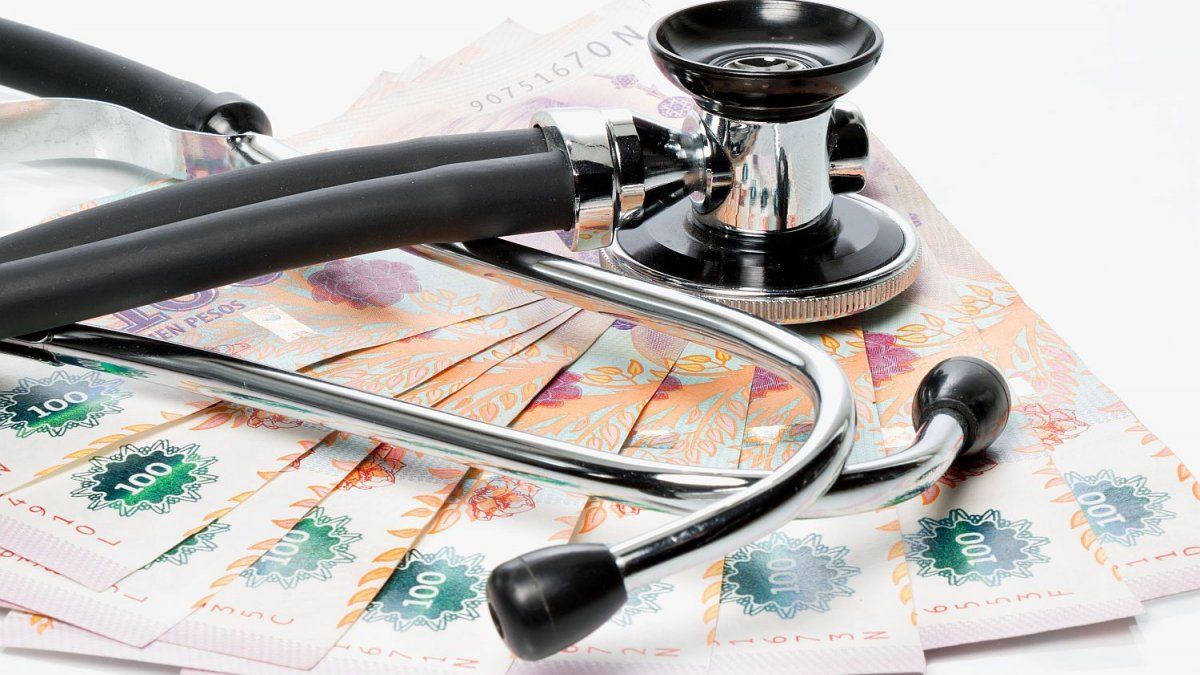But Law 14,386 has just been published in the official newspaper of Santa Fe, whose article 18 provides for the modification of the aforementioned paragraph l), in such a way that, from now on, although the exemption mentioned in the previous paragraph is generally maintained, it is establishes an exception for certain professionals, when regarding them “practices that violate the provisions of Law 13,731 of the province of Santa Fe will be detected.”
We are going to carry out a brief technical-legal analysis linking both legal norms, without rehearsing any value judgment regarding the underlying problem that threatens health in our country.
Prohibition of additional charges
The aforementioned Law 13,731, which was sanctioned on 11/30/2017, and regulated by Decree No. 3,343 of 11/4/2019, specifically provides: “It is prohibited throughout the territory of the province of Santa Fe, the charging of ‘pluses’, additional or monetary complements for the services that professionals in the art of healing and related branches provide to members who are covered under the coverage of governed entities. by national laws 23660 (Social Works), 23661 (National Health Insurance System) and law 8288 (Provincial Autonomous Institute of Social Work – lAPOS), provided that they are not part of the tariffs set in agreements signed between the entity and the aforementioned professionals and/or the trade organizations that group them, as remuneration for the service..
This prohibition includes all clinical, sanatorium, diagnostic, and any other benefits that are covered by the aforementioned laws or agreements and/or that will be created in the future.”.
As you can read, this is a law applicable to a very specific branch of professional activity. For the rest, it is well known that although it tends to collect the duly verified bonus, the reform to section l) of art. 213 of the CF, lifting the exemption, seeks not only the collection of the tax derived from the amount of income obtained through the aforementioned means, but – as a result of the same – it does so on the entire income obtained by the aforementioned professionals, who Until now they legally enjoyed the benefit of the exemption.
The authority for the application of Law 13,731 is the Ombudsman’s Office of the Province of Santa Fe, providing that, when the injured subject is affiliated with an entity governed by the aforementioned national laws, the complaints they make for violations of the The same must be sent to the Superintendency of Health Services (of the Nation), as provided by the regulations.
The rule provides that, in order to detect, verify and sanction the commission of acts that the law of the plus prohibits, the Ombudsman’s Office may act ex officio and/or at the request of a party, in accordance with the regulations.
Regarding the legitimacy to file pertinent complaints, the law confers it on those affiliated with Provincial Law 8,288 and those referred to in Articles 8 and 9 of National Law 23,660, as applicable, who report having been affected. for the charging of extra by the providers involved in the aforementioned national standard.
Procedural steps
Acting ex officio or at the request of a party, the law entrusts the Ombudsman of the Province of Santa Fe with actively and regularly inspecting the establishments where social work providers carry out their activities, as indicated in the corresponding regulations.
Obviously, in the case of procedures in which the objective is to arrive at the material truth, in cases in which violations of this law are detected, the inspectors will prepare the minutes, leaving a record therein, with express mention of whether the action has been carried out. ex officio or as a result of a prior complaint, which may be signed by the inspected provider.
It is essential that the Enforcement Authority must guarantee due administrative process, collecting data that allows dimensioning the problem and any other duly founded purpose. A copy of the record with the details of the verified infraction must be left in place, opening the instance for the corresponding defense, which must be formulated within a non-extendable period of five (5) business days.
If the inspected provider makes a defense with an offer of evidence, the enforcement authority will evaluate the admissibility and relevance of the evidence. If the transfer is answered without offering evidence, the enforcement authority will evaluate the need to produce evidence. Once the evidence has been produced, if applicable, the transfer has been answered or the inspected provider has not appeared, the enforcement authority will notify that the proceedings will be available for consultation for a period of five (5) days. Once this last period has expired, the enforcement authority will be in a position to resolve. The resolution that imposes a sanction may be appealed before the Civil and Commercial Chamber. The appeal must be filed and founded, before the Ombudsman’s Office, within ten (10) days of notification, prior to the deposit of the amount of the fine.
In order to consider the seriousness of the offense committed, the regulations provide that the economic and health situation of the patient will be taken into account, the damage caused to them, the amount of the bonus, additional or monetary supplements requested, the social significance and all that extreme that is considered relevant.
Sanction to apply
From the point of view of the fine to be applied, in addition to those contemplated in the Tax Code, the law requires taking into consideration the seriousness of the offense committed and the existence or not of recurrence thereof, in accordance with the regulations of the Executive Branch, according to the following sanctions: a) Fine equivalent to one (1) minimum, vital and mobile salary and up to five (5), with plus ninety (90) days of suspension as a provider of the organization’s affiliates; b) Fine equivalent to five (5) minimum, vital and mobile salaries and up to ten (10), with plus one hundred eighty (180) days of suspension as a provider of the organization’s affiliates. That is, accumulation of sanctions and danger of punitive excess.
The norm under analysis warns that, without prejudice to what is established, and within the framework of its legal powers, the enforcement authority may use all the means of proof that it considers most suitable for the detection and verification of the improper collection of the so-called medical bonus, always within the state of due process.
Tax collection-punitive reform
In short, it is a tax reform with a collection-punitive characteristic, the regulation of which will encounter many difficulties in overcoming the inconveniences that will hamper the effective verification of the taxable-punishable act that lies within it. A task in which, without a doubt, the competent organizations “invited” for this purpose (ARCA-API-Ministry of Health, etc.) will take part, as contemplated by the regulations.
It is to be assumed, finally, that, once the administrative route has been exhausted, a lengthy judicial process will ensue that will ultimately put an end to the extensive dispute arising from a tax reform that has adopted the decay of an exemption as a method of sanctioning an illegal act.
Public accountant. Tributary.
Source: Ambito




